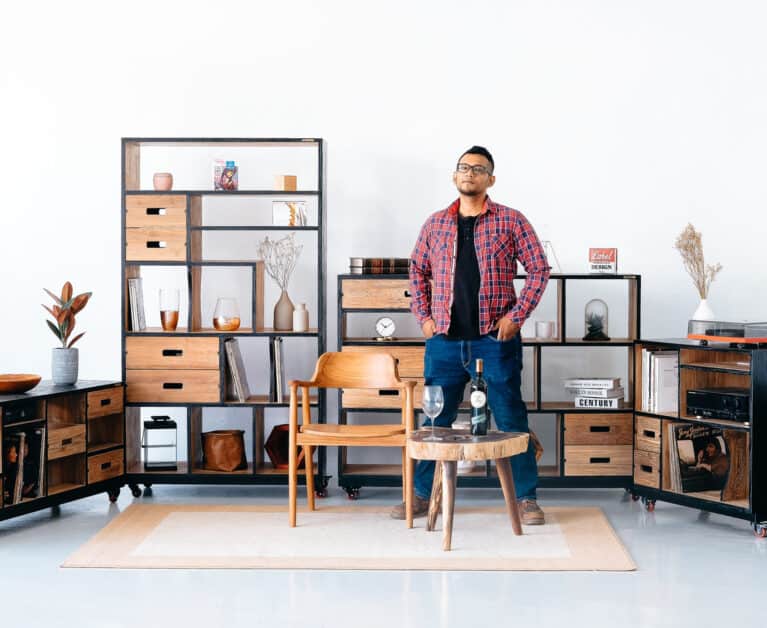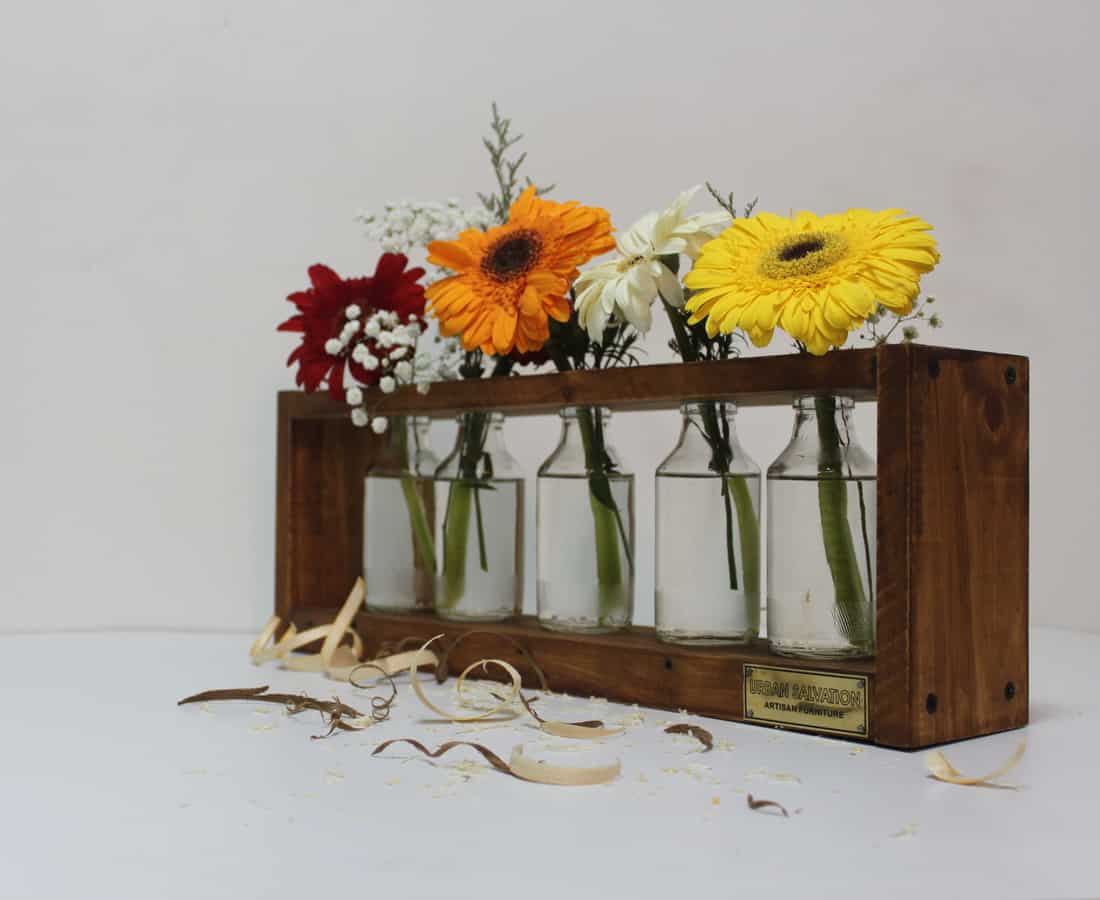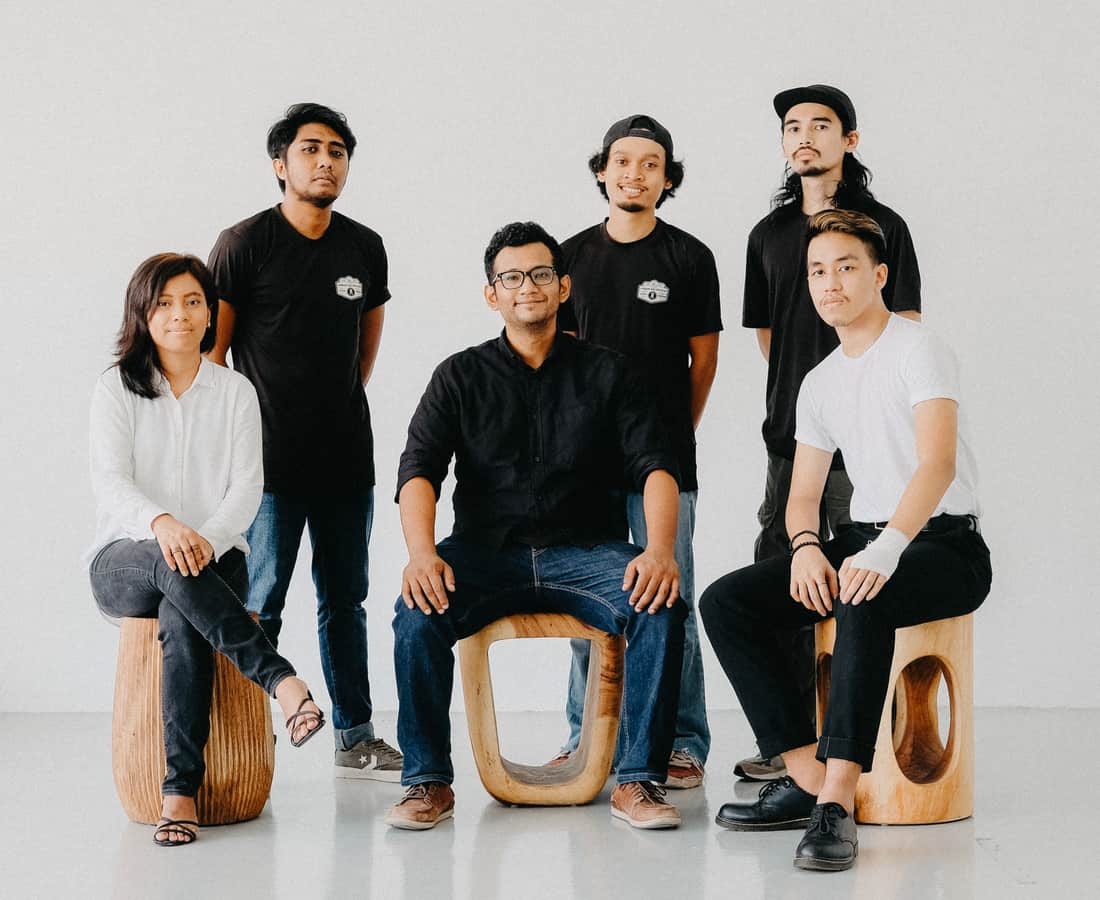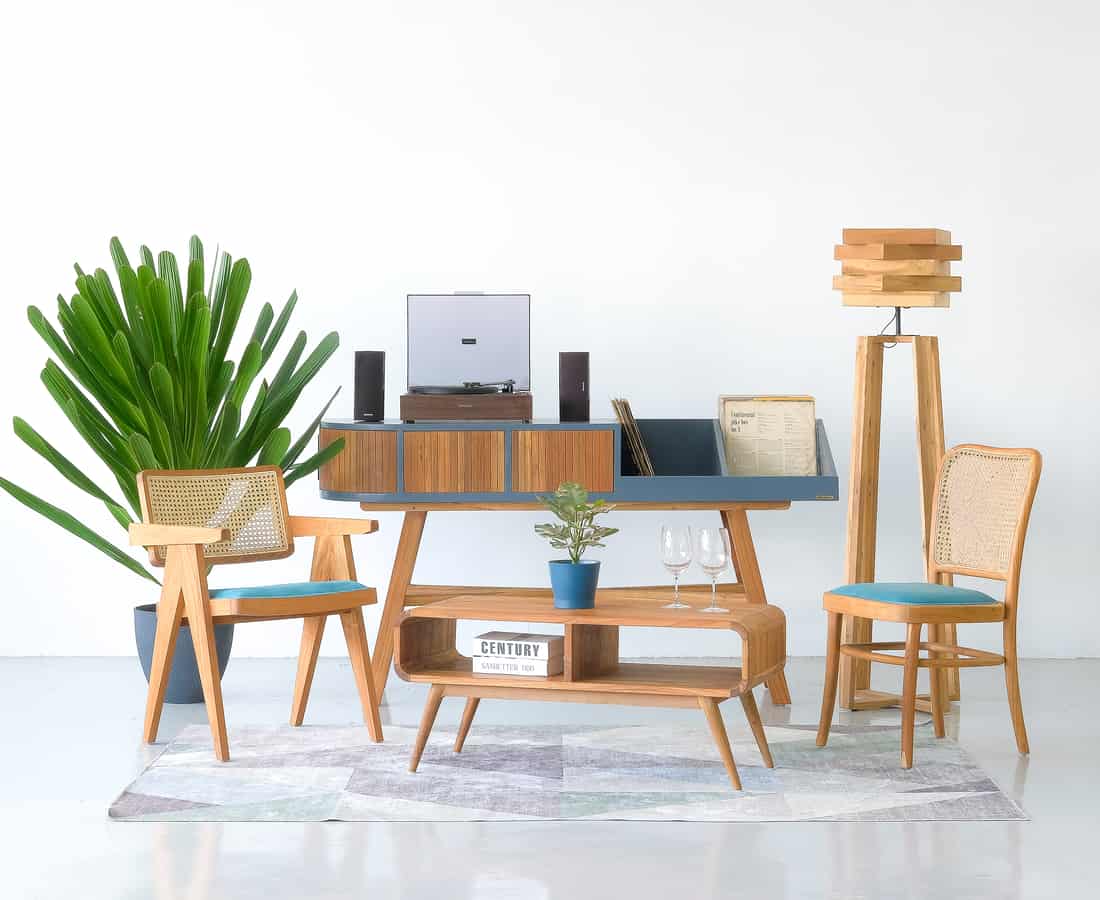Eye Candy: We Talk Sustainability and Stigmas with Ahmad Habshee, Founder of Woodworking Studio Urban Salvation

PUBLISHED November 19th, 2021 05:00 am | UPDATED November 30th, 2021 12:53 am
To Ahmad Habshee, woodworking was more than a craft or a trade – it was a form of salvation for his lost 20-something self. Today, you might know him as the passionate craftsman behind Urban Salvation – a trailblazing furniture brand which handcrafts sustainable wooden pieces, using wood salvaged from local trees and reclaimed Indonesian teak.
His journey from secondary school dropout to founder of his own workshop was fraught with struggles, especially in our era of mass-produced wares. We chat with him on his woodworking journey, the true nature of sustainability, and how he never lets his customers leave empty-handed.
Hi Ahmad! We understand you were from the entertainment industry. What pushed you to make a radical career change?
The beginning of Urban Salvation was the first step in a long, strenuous journey of finding my own salvation.

When I first started out, I only had my first workshop and a discarded pine pallet plank of wood to show my customers. Absolutely nothing else. But I had been very fortunate to meet countless people who saw value in woodwork, and placed their faith in me and my team to bring their visions to life. Eden, my partner, who trusted me and has helped me along this tough journey. One of my customers who has become a very close friend, Mr Thanga, believed in my skills. I am still very grateful for what he’s done for the company. I spared no expense in his project – and still don’t, when handling custom furniture projects.
Back when I was in the entertainment industry, I learnt I had a knack for figuring people out and how they think. I prioritize building a relationship with my customers – even when they don’t buy from me, they never leave empty-handed. When I host them at the gallery space, I talk to them about everything and anything under the sun – woodworking techniques, the importance of sustainability, how we can enact change in ways most people might take for granted. It’s the technicalities of relationships with their customers that most business owners gloss over. There’s no… humility. I want people to feel welcome when they step into my workshop.
Tell us about the story behind your workshop name, Urban Salvation.
What is now known as Urban Salvation was a place for me to redeem my sense of self. In my early twenties, I was lost – like every other Singaporean. Quite literally, it was my way of finding salvation by taking a sustainable approach, in an industry where wood wastage is commonplace and furniture is viewed as a product – not a story.
I wanted to insert an element of priceless value, timelessness, and art by means of furniture. Woodworking is forever; it is a skill that originated eons ago. When man first began building, they started with wood. I wanted to bring that sentiment into people’s lives – to start believing in local talents who spend years perfecting their craft, in a world where everything is made fast and with no substantial value other than the purely functional.
It can’t have been easy carving out a career in woodworking. Could you share more about your journey and the challenges you faced?
Being born in 1989, I was nurtured with the importance of the 5Cs: Condominum, Cash, Credit, Car, Career. It’s a Singaporean thing of course. But it made me furious. Before Urban Salvation, I used to work in a different furniture company. It’s funny, how asking for a pay raise was determined by my educational level. The stigma of knowing I was a secondary school dropout.

That was the blowout. That was the goddamn truth – the reason why I left and started a business of my own. I felt that the company didn’t take into account my ideas, despite tripling company revenue and working with no CPF, despite my passion for woodworking and the time and effort I was willing to put in. My faith was gone in one sentence: ‘Your education does not justify the pay you’re asking for!’ For a young adult, it’s one thing to have a career, but being happy is another.
It was hard to gain support for what I wanted to do. I went all over the world, to places like the UAE, Indonesia, Malaysia, to learn woodworking from the masters. I didn’t care whether the skills taught were by tool and hand in rural areas by the village people, or by the giant CNC machineries you’d find in commercial workshops.
I never stopped learning. I believe in having no ego; I did dumpster diving. I got bullied by customers, low-balled, no-show appointments. It was tough. I knew that working for S$20 a day, just to create a portfolio, would be difficult. Today I dare to say it was worth it. So to all who feel lost in this era: believe in yourself, invest in your own potential, and dedicate your life to lifelong learning.

Has sustainability always been important to you?
Many people mistake sustainability for an ongoing fad – a trend that will eventually die, and the market will go back to supplying overnight trends for cheaper and cheaper rates. But we live in the 21st century, and people are becoming more aware of their impact on the world, both on an environmental and socio-political level.
I myself am part of that generation and I sincerely believe change is possible. Sustainability isn’t just about taking into consideration the end-of-life factors to the materials I use, or how to reduce wood wastage. It’s about supporting my team in Indonesia – the woodworkers who have families to support – as well as my employees here in Singapore, a team of creatives who’ve made contributions to the company.
We’re aiming high. We’re aiming far. This is about sustaining people; creating opportunities for those who are under-privileged and have been turned away from places of business countless times. So, if you ask me the true nature of sustainability. I would say sustainability is a way of life, not just an idea. It’s for your life and mine.
We hear you’re currently taking classes for a diploma in furniture and spatial design. Has that changed the way you think about furniture design so far?
I’m still in my first year, learning the fundamentals. Honestly, it’s too early to tell but I’ve met great classmates and great teachers who have inspired me to become a better version of myself; Mr Chiew, Mr Russel, Ms Ho from NAFA. My classmates are all much younger than me, and they look up at me like I’m their big brother. So it’s a breath of fresh air to learn how to connect to the younger people too. The way I look at it, it’s an opportunity for me to reconnect with the future generation of leaders.
Mostly the reason why I’m going to school is to get a sense of how good my current skills are and where to go from here. You need to be open to all avenues of interest, in the pursuit of learning. I wanted to make furniture with history behind it, build a legacy, a brand with meaning. I didn’t want to leave any stone unturned.
If you could change one thing about Singapore’s furniture scene, what would it be?

They say Singapore has no talent, but yet we do. We invest so much in overseas talents, and view products of international brands on a higher level, but why? I’ve met countless crafters and talents here in Singapore. There’re The Fellas, Alvan Koh from Mokko Wood Studio, Uncle Ray from Hand Design, 25 Degree Woodworks. I’ve seen households spend thousands importing furniture from overseas, because they believe overseas products have higher value. Of course, it’s up to one’s interpretation of what exactly is good furniture and good design. But why not support your community? Why not your fellow countrymen, when they’re right next door?
What are your biggest aspirations for Urban Salvation?
I want to transform Urban Salvation into a hub. I want people to feel welcome here, and to never leave empty-handed. You leave with a realization that you’ve learnt something, that you’ve gained a new experience you can’t obtain anywhere else. It’s this sense of community that I want to bring into the doors of Urban Salvation, and you can’t do that without finding the right people.
Ever since we went private limited, we hope we can make a greater impact not just on the local furniture industry, but on a global level. I want to be able to prove that a Singaporean company can become a highly-competitive international company one day. A woodworking school, a design firm, and an international furniture company founded in Singapore.
What do you do to stay inspired?
I’m always inspired, round the clock. I have colleagues who challenge me, customers who seek professional help, and students seeking guidance. The best is when someone buys my original work. It’s one of the best feelings for a furniture maker to be motivated to do greater work.
Keep up with Urban Salvation on their website, Facebook, and Instagram.
All photos courtesy of Ahmad Habshee
